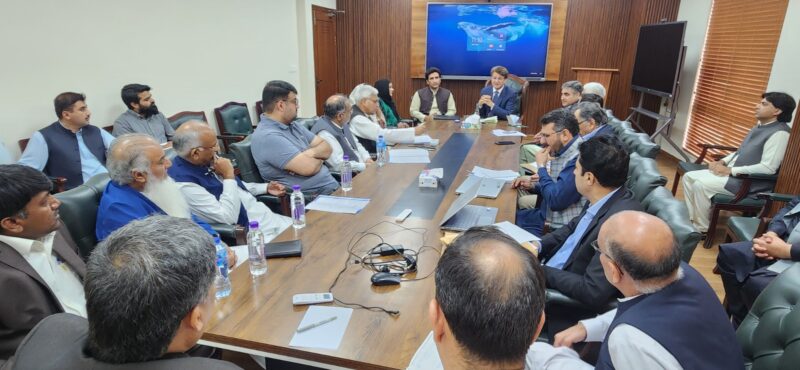ISLAMABAD: The Public Procurement Regulatory Authority (PPRA) held a consultative session on Friday to seek feedback from key stakeholders on the Draft Public Procurement Rules, 2025. The session is part of PPRA’s continued efforts to enhance transparency, efficiency, and inclusivity in Pakistan’s public procurement processes.
The meeting, chaired by Managing Director PPRA Hasnat Ahmed Qureshi, was attended by representatives from various industry bodies, including the Pakistan Council of Architecture and Town Planners, the Construction Association of Pakistan, the Islamabad Chamber of Commerce and Industry, the Islamabad Women Chamber of Commerce & Industry, the Islamabad Industrial Association, and the All Pakistan Security Agencies Association. Senior PPRA officials were also present.
In his address, MD Qureshi outlined major features of the new draft rules, which aim to streamline procurement operations through the establishment of dedicated procurement cells, third-party evaluations, grievance redressal systems, and integrated contract management. The framework also proposes a national blacklisting system and revised process flows to ensure better accountability and efficiency.
He emphasized the full rollout of the e-Pak Acquisition & Disposal System (EPADS) in federal agencies and in the provinces of Punjab, Sindh, and Khyber Pakhtunkhwa. The digital platform now supports around 10,000 procuring entities and over 30,000 registered suppliers, offering a complete digital solution from planning to payment.
“A system without integrity is meaningless,” Qureshi remarked, noting that EPADS has successfully undergone a comprehensive security audit and meets all regulatory standards.
Qureshi also highlighted PPRA’s robust training initiatives aimed at building the capacity of public sector officials, vendors, and suppliers. He encouraged stakeholders to take advantage of these programs to ensure effective implementation of the new rules and systems.
Participants provided valuable input on bid evaluation criteria, challenges in the e-procurement process, and EPADS implementation. Many emphasized the need for regulations that serve both public and private sector interests.
Concluding the session, MD Qureshi invited all stakeholders to submit written recommendations, assuring that their feedback would be carefully reviewed and incorporated into the final version of the Public Procurement Rules 2025.


Comments are closed.